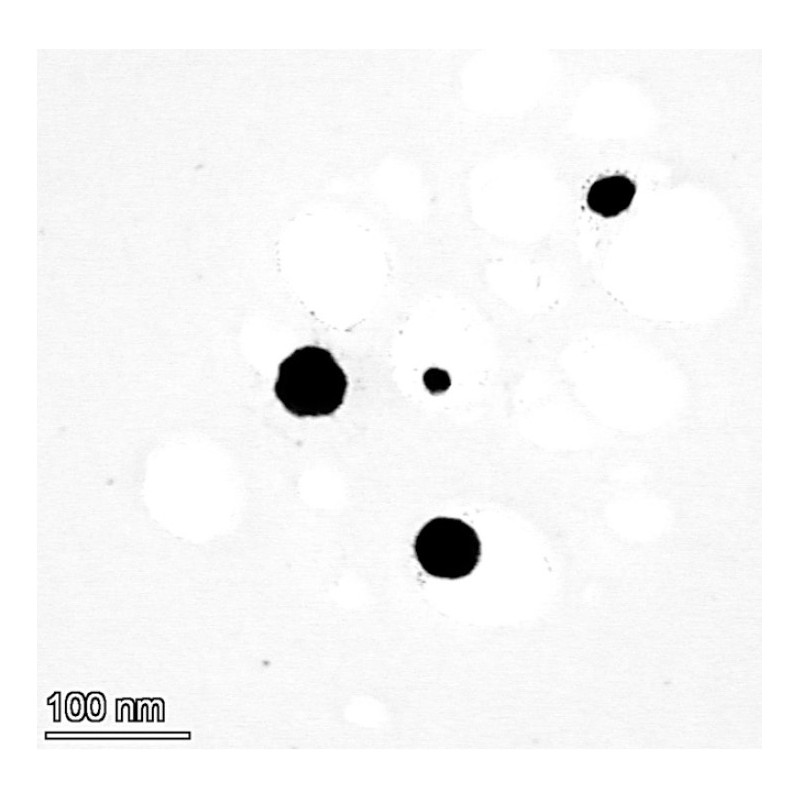Copper Nanoparticles 70nm: Exploring the Potential of 3wt% & 10wt% Solutions
Discover the significant advancements and diverse applications of copper nanoparticles 70nm, specifically focusing on the utility and characteristics of 3wt% copper solution and 10wt% copper nanoparticles suspensions. These aqueous dispersions represent a frontier in nanotechnology, offering unique properties for a wide range of industries. Understanding these specific concentrations of aqueous copper nanoparticles is crucial for researchers and developers looking to harness their full potential. This article delves deep into the properties, synthesis, and cutting-edge uses of these remarkable copper suspension solutions.
Explore Copper Nanoparticle Solutions
Understanding Copper Nanoparticles 70nm
Copper nanoparticles, particularly those with a controlled size like 70nm, exhibit properties vastly different from bulk copper. Their high surface area-to-volume ratio leads to enhanced reactivity and unique physical characteristics. When dispersed in a liquid medium, they form copper colloidal solutions or copper nanoparticle dispersion, providing a stable and easy-to-handle format for various applications. The 70nm size offers a balance, providing significant surface area while maintaining a degree of stability in suspension.
Why 3wt% and 10wt% Copper Suspension Solutions?
The concentration of nanoparticle copper solutions is a critical factor influencing their performance in different applications. 3wt% copper solution offers a lower concentration, suitable for applications requiring less material or where cost-effectiveness is paramount. It provides a good balance of dispersion stability and active copper content. On the other hand, the 10wt% copper nanoparticles suspension delivers a higher density of nanoparticles, making it ideal for applications demanding higher conductivity, catalytic activity, or antimicrobial efficacy where a stronger effect is needed. These specific concentrations cater to diverse research and industrial needs, providing flexibility in formulation and application.
Synthesis and Characteristics of Copper Suspensions
The quality and performance of aqueous copper nanoparticles heavily depend on their synthesis method and the resulting characteristics of copper suspensions. Common synthesis routes include chemical reduction methods, electrochemical techniques, and physical processes. Achieving a narrow particle size distribution centered around 70nm is crucial for consistency. The stability of the copper nanoparticle dispersion in water is often enhanced through the use of stabilizers or surfactants, preventing aggregation and sedimentation. High purity materials are essential to ensure the performance and reliability of the final high purity copper nanoparticles suspensions. Evaluating parameters like particle size, zeta potential, and morphology is key to understanding the copper suspension properties.
Recent Major Applications of Copper Nanoparticles 70nm
The unique properties of copper nanoparticles 70nm, especially in stable copper suspension solutions like 3wt% and 10wt%, are driving innovation across numerous fields. The ease of handling and application of these liquid dispersions makes them particularly attractive for large-scale or precise deposition processes.
Nano Copper for Electronics
One of the most significant areas for nanoparticle copper solutions is electronics. Copper is highly conductive and cost-effective compared to silver or gold. Nano copper for electronics is used in conductive inks and pastes for printed electronics, flexible circuits, RFID tags, and sensors. The 70nm size allows for fine-line printing and sintering at relatively low temperatures, making it compatible with various substrates, including plastics. The 10wt% copper nanoparticles suspension is particularly relevant here due to the need for high conductivity paths. Examples include creating conductive traces on polymer films for flexible displays or fabricating electrodes for electronic components.
Catalysis
Applications of copper nanoparticles in catalysis are expanding rapidly. Copper nanoparticles act as efficient catalysts for various chemical reactions, including click chemistry, CO reduction, and organic synthesis. The high surface area of 70nm particles provides numerous active sites. Copper colloidal solutions offer a convenient way to introduce the catalyst into reaction mixtures, allowing for homogeneous or heterogeneous catalytic processes. The concentration (like 3wt% copper solution) can be tailored based on the reaction kinetics and desired yield. For instance, they are being explored for converting CO2 into valuable chemicals, contributing to carbon capture and utilization efforts.
Antimicrobial Agents
Copper has long been known for its antimicrobial properties. Copper nanoparticles 70nm significantly enhance this effect due to their increased surface area, allowing for greater interaction with microorganisms. Aqueous copper nanoparticles suspensions are being incorporated into coatings, textiles, and plastics to provide long-lasting antimicrobial surfaces. This is particularly relevant in healthcare settings, public transport, and consumer goods to reduce the spread of bacteria and viruses. The copper suspension properties make them easy to integrate into various matrices.
Heat Transfer Fluids
Adding copper nanoparticles 70nm to heat transfer fluids (like water or glycols) creates nanofluids with enhanced thermal conductivity. These improved heat transfer capabilities are valuable in cooling systems for electronics, automotive radiators, and industrial processes, leading to improved energy efficiency and cooling performance. The stability of the copper nanoparticle dispersion is crucial to prevent clogging in such systems.
Other Emerging Uses
Beyond these major areas, applications of copper nanoparticles include: lubricants (reducing friction and wear), solar cells (as components in electrodes), sensors (detecting various chemicals), and even in some medical applications (like targeted drug delivery or imaging, though this is still largely research phase). The versatility offered by different concentrations like 3wt% copper solution and 10wt% copper nanoparticles expands their applicability.
Advantages of Using Copper Nanoparticle Solutions
Utilizing copper suspension solutions, particularly the 70nm size at 3wt% and 10wt% concentrations, offers several key advantages:
- Enhanced Reactivity: The high surface area of copper nanoparticles 70nm boosts their catalytic, antimicrobial, and conductive properties compared to larger particles or bulk copper.
- Ease of Handling: As liquid dispersions, aqueous copper nanoparticles are easier to handle, measure, and integrate into various processes than dry powders.
- Tunable Properties: The concentration (3wt% vs 10wt%) allows for tailoring the material's performance for specific application requirements.
- Cost-Effectiveness: Compared to noble metal nanoparticles (like silver or gold), copper nanoparticles offer a more economical solution for many applications, especially in nano copper for electronics.
- Versatility: The ability to disperse in water makes them compatible with a wide range of water-based formulations and processes.
Frequently Asked Questions about Copper Nanoparticle Solutions
Choosing the Right Copper Nanoparticle Solution
Selecting between the 3wt% copper solution and the 10wt% copper nanoparticles suspension depends entirely on your specific application requirements. For proof-of-concept studies, applications requiring minimal material, or cost-sensitive projects, the 3wt% might be sufficient. For demanding applications like high-conductivity electronic traces or potent antimicrobial formulations, the higher concentration of 10wt% provides the necessary performance boost. Consulting with copper nanoparticles suppliers and reviewing technical specifications for their high purity copper nanoparticles is always recommended.
Conclusion: The Future of Copper Nanoparticle Dispersions
Copper nanoparticles 70nm, particularly in stable copper suspension solutions like 3wt% and 10wt%, represent a powerful tool in the hands of researchers and industries. Their unique size-dependent properties, coupled with the convenience of aqueous dispersion, open doors to innovations in electronics, catalysis, healthcare, and beyond. As research into the synthesis of copper nanoparticles continues to yield more controlled and scalable methods, and as we further understand the copper nanoparticles environmental impact, their role in advanced materials and technologies is set to grow significantly. For those involved in copper nanoparticles for research or seeking advanced materials for industrial use, exploring these specific copper colloidal solutions is a valuable step towards future breakthroughs. The market for reliable sources to buy copper nanoparticle solutions is crucial for driving this progress, ensuring access to consistent, high-quality materials with well-defined copper suspension properties.
Learn More and Purchase 70nm Copper SolutionsGet in Touch
Have questions about copper nanoparticles 70nm or need help selecting the right concentration for your application? Contact our experts.
